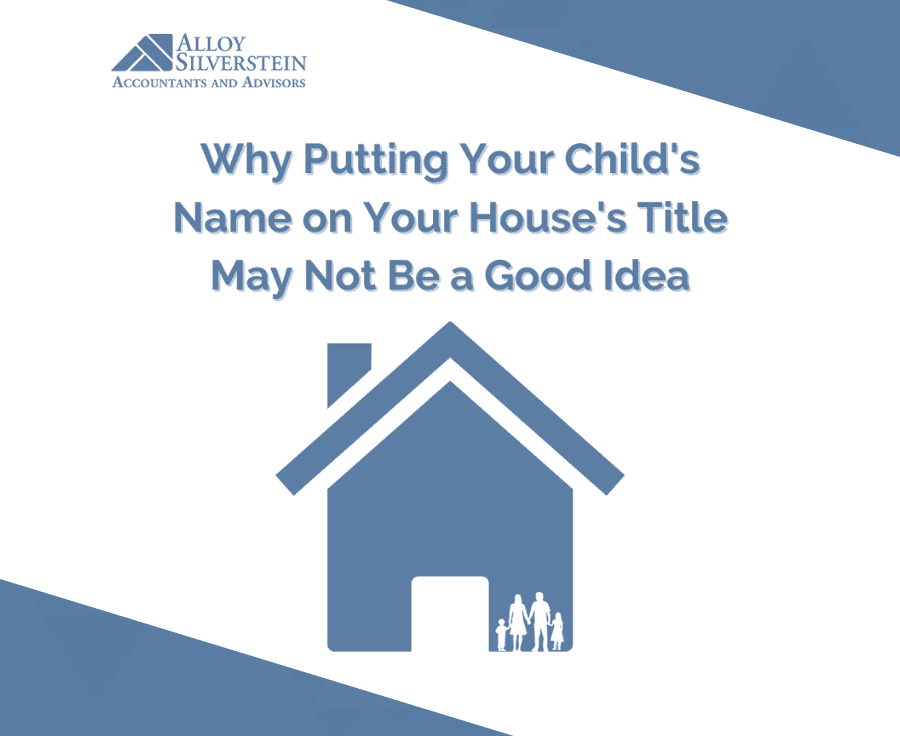

Many parents own houses and may want to pass them on to their children at some point. A common thought is to just add the children’s names to the title of the house. While this might sound like a simple solution, it’s usually not a good idea. At a minimum, it risks causing tax problems for your children. In the worst case, you could even lose control of your own home.
If your children inherit the house, they’ll receive what is called a stepped-up basis. That means their cost basis in the house is the fair market value on the day they inherit it. When they sell the house, any capital gain is measured from that cost basis. But if you just add their name to the title, you’re effectively giving them an interest in the house. Their ownership interest in the house won’t receive a stepped-up basis, and any capital gain when they sell is likely to be larger.
Generally, any annual gift to one person over $15,000 could be taxable. So giving away a share of your property can be a taxable gift. You may not pay the taxes immediately but the effect will be to reduce the amount of your estate that is exempt from joint gift and estate taxes.
Because your child or children are now co-owners, their share of the home could be at risk if they incur a major liability. In the worst case, you could even be forced to sell the home to satisfy a judgment against them. Or consider what could happen if you add a married child(ren)’s name to the title. If they then die or divorce, you could find yourself in a family fight with your son-in-law or daughter-in-law over the disposition of their share of the house. A way to prevent this sort of situation would be to put a life estate in the deed. A life estate deed is a legal document that changes the ownership of a piece of property. The person who owns the property, the parent(s), sign a deed that will pass the ownership of the property automatically upon their death to someone else, known as the “remainderman”, the child.
While it’s generally not a good idea to add your child’s name to your title, every case is different. Please call if you would like guidance on the tax implications of any specific situation.
Empowering business owners and individuals in South Jersey and Philadelphia to feel confident through proactive accounting and advisory solutions.